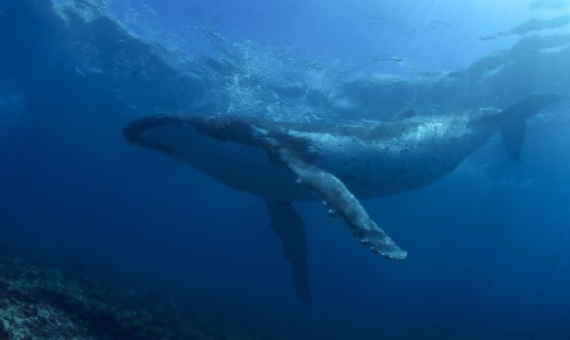Four Pacific coral reef World Heritage sites have been selected for a four-year, USD$9 million project that will build climate resilience leadership - Rock Islands Southern Lagoon (Palau), Lagoons of New Caledonia (France), Ningaloo Coast and the Great
Fiji has been labelled a bigger brother in the Pacific by the President of Kiribati.Taneti Maamau made the statement while visiting the Koroipita Model Town in Naikabula, Lautoka on October 29. This was followed by a meeting on climate change adaptation and solutions.
Field Note - Discovery of a recovering climax Acropora community in Kanton Lagoon in the remote Phoenix Islands Protected Area
An expedition in 2002 to the Phoenix Islands Protected Area in the Republic of Kiribati documented an extensive and delicate community of staghorn and tabular Acropora colonies...
Risk-sensitive planning for conserving coral reefs under rapid climate change
An attainable global vision for conservation and human well-being
A hopeful vision of the future is a world in which both people and nature thrive, but there is little evidence to support the feasibility of such a vision. We used a global, spatially explicit, systems modeling approach to explore the possibility of meeting the demands of increased populations and economic growth in 2050 while simultaneously advancing multiple conservation goals.
As climate change causes ocean temperatures to rise, coral reefs worldwide are experiencing mass bleaching events and die-offs. Click on the link below to read the full article.
The singers, in this case, are endangered Oceania humpback whales near the island of Niue, where they are considered sacred — and are a key to understanding the status of migratory marine species amid a changing climate. Click on the link below to read the full article.
Businesses are looking at new ways to attract visitors that benefit the environment and local communities. Click on the link below to read the full article.
An international team of scientists has developed a global scenario called Low Energy Demand, arguing that humanity’s appetite for things like electric cars and cellphones, as well as the development of better building standards, can drive a revolution in efficiency that could help lower energy d
Under current greenhouse gas emissions rates, climate change will alter ocean ecosystems dramatically in the coming decades.













